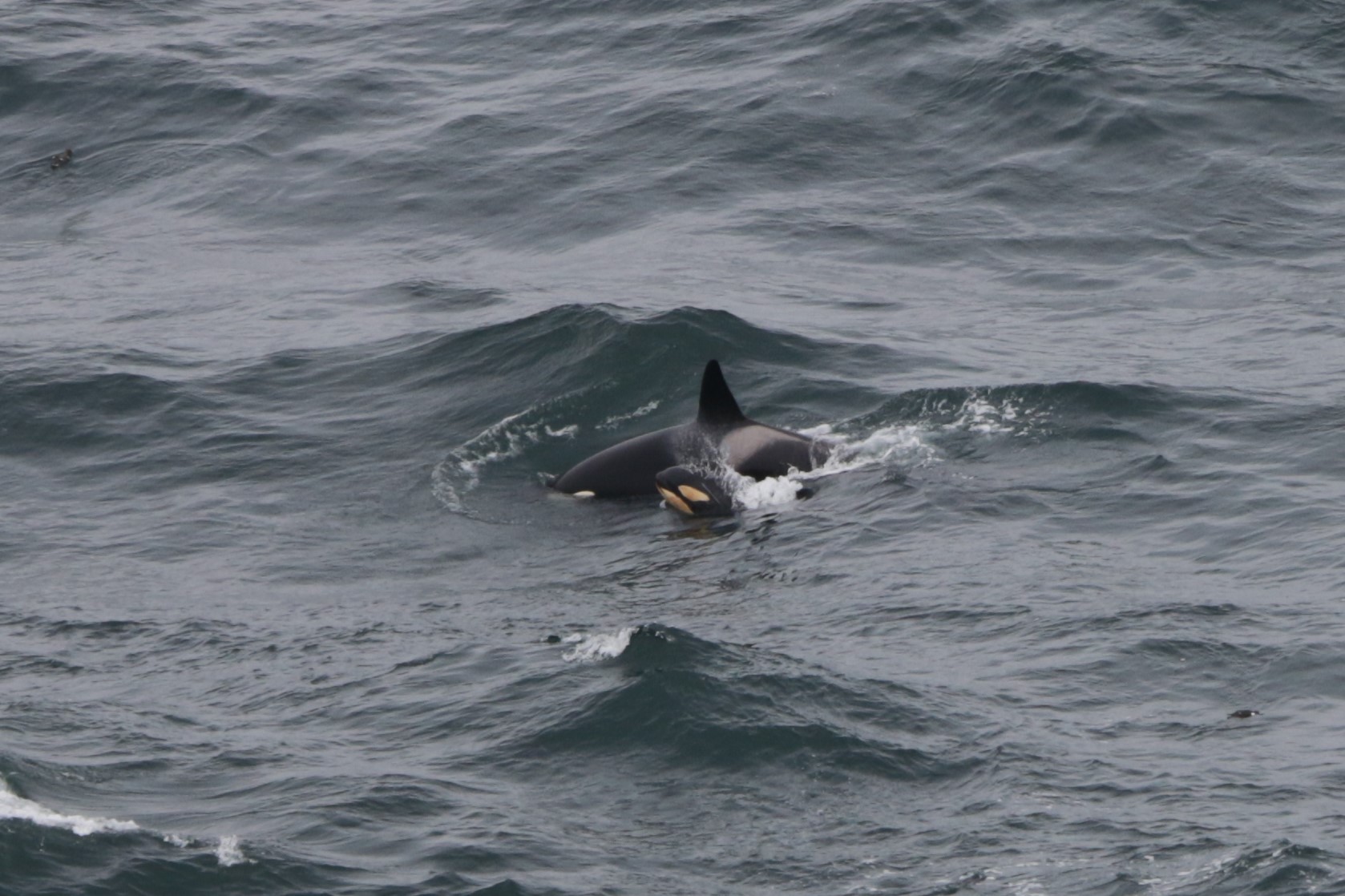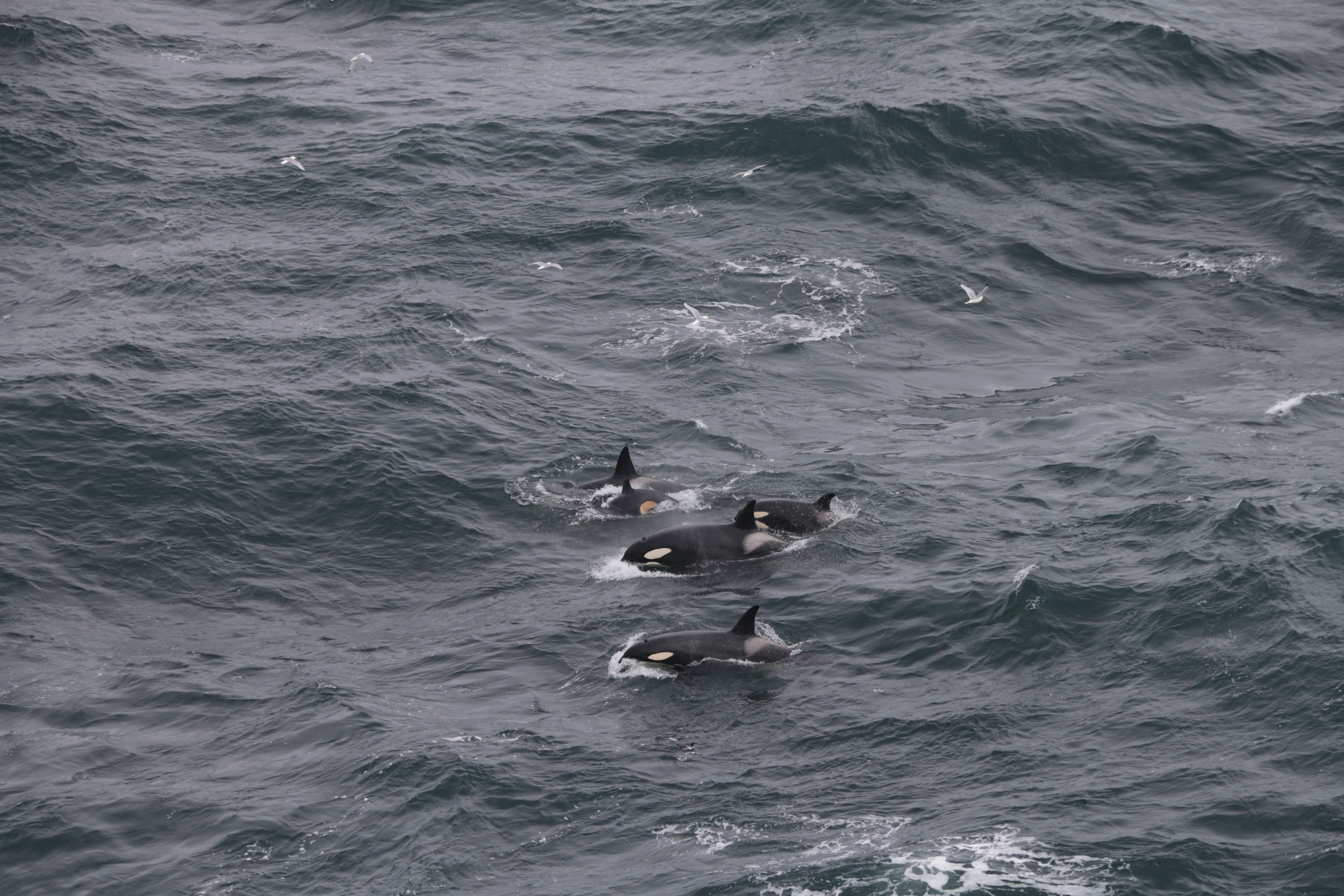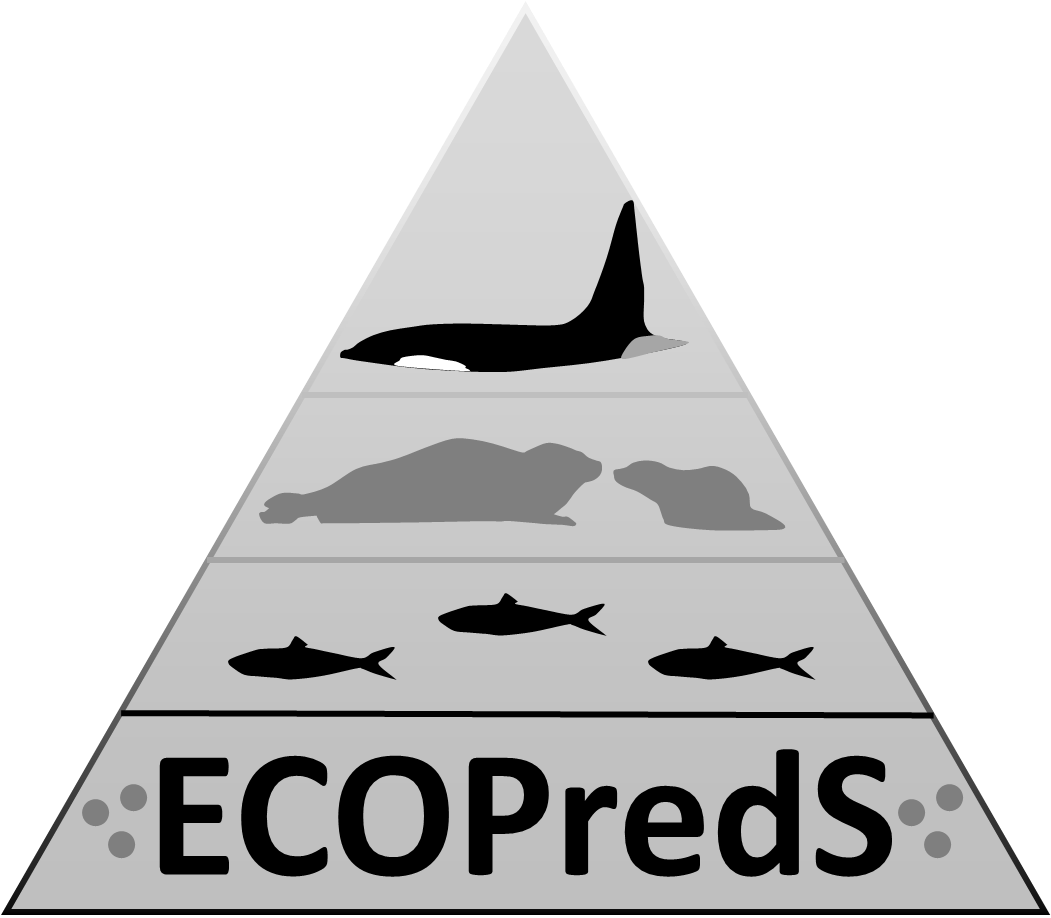The ECOPredS project investigates predator-prey interactions between killer whales and their prey, including grey and harbour seals, in Scotland. A key question to the project is the impact of predation on harbour seal populations. In the UK, harbour seal populations are showing regional declines, while grey seal populations are relatively stable. Declines have also been observed elsewhere in the North Atlantic. Killer whales feed on both seal species, but the scale of the predation is largely unknown.
Our ultimate goal is to fill knowledge gaps that can inform the conservation and management of both the predator and prey species. To learn more about our research questions, have a look at our Aims & Approaches.
The big picture
All organisms require food (energy and nutrients) for their survival and reproduction, and are also potential food for others. More often than not, prey species have evolved adaptations to reduce the risk of being consumed by predators, but often this comes at a cost to both prey (e.g., the locomotion cost of predator avoidance) and their predators (e.g., selection of smaller prey to reduce risk of injury). This means that not not all energy spent in predator-prey interactions is related to the consumption of prey, leading to ‘non-consumptive’ effects in food webs.

Considering non-consumptive effects is important to understand the true impact of predation risk and also other stressors, such as noise pollution, or scarce and unpredictable food availability. By building bioenergetic models, we can start quantifying the cumulative impact of such stressors on wildlife.
Long-lived species such as marine mammals must survive extended juvenile years to reach reproductive age. Marine mammals live in a highly dynamic marine environment that requires individuals to have flexible strategies to cope with change. Thus we can expect food-safety trade-offs to play an important role in the evolution and ecology in these species.



